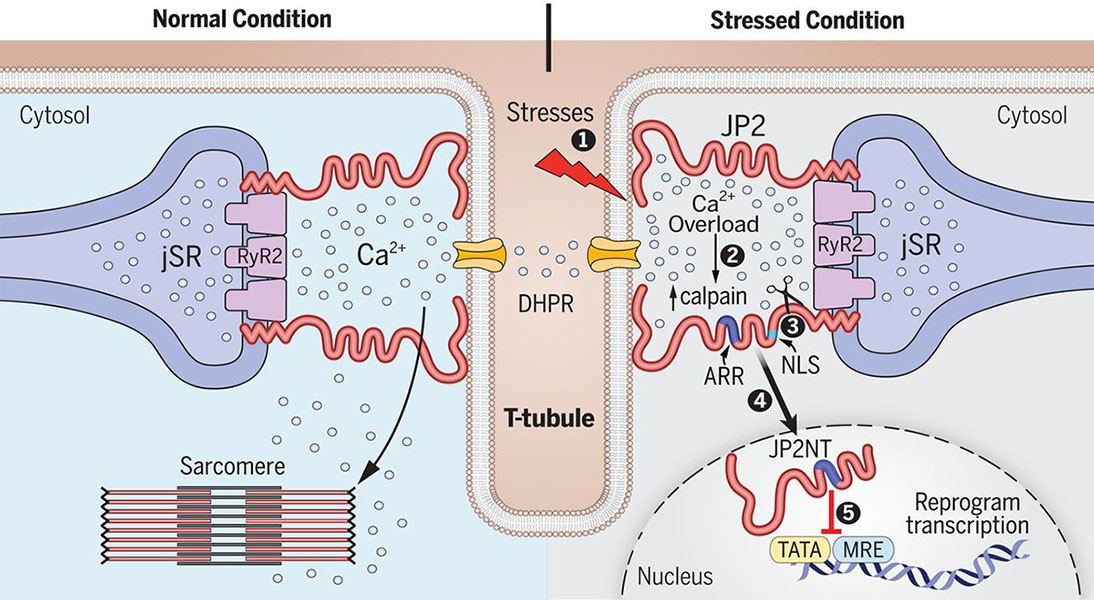Research in the Song laboratory focuses on understanding the cellular and molecular mechanisms that contribute to heart failure and arrhythmias, including atrial fibrillation, arrhythmogenic right ventricular cardiomyopathy (ARVC), and catecholaminergic polymorphic ventricular tachycardia (CPVT).
In particular, we are interested in elucidating the novel functions of the E-C coupling structure protein junctophilin-2 in heart cells and its implications in these heart diseases. Our work has established a new paradigm for heart failure development and progression by linking junctophilin-2 dysregulation to alterations in cardiomyocyte T-tubule ultrastructure and impaired E-C coupling (Song, PNAS 2006; Wei, Circ Res 2010; Guo, PNAS 2014; Zhang, Circulation 2014, and others). Additionally, we have identified two distinct mechanisms driving junctophilin-2 dysregulation: 1) proteolysis of junctophilin-2 by calpain (Wu, JAHA 2014; Guo, JBC 2015) and 2) mis-trafficking of junctophilin-2 to the cell periphery via microtubule densification (Zhang, Circulation 2014). Recently, we made a groundbreaking discovery that junctophilin-2 functions as a stress-adaptive transcriptional regulator, serving as a crucial protective mechanism that counteracts pathological remodeling in response to cardiac stress (Guo, Science 2018). Moving forward, we are committed to further investigating the novel roles of junctophilin-2 and exploring its potential as a therapeutic target for treating heart failure.
